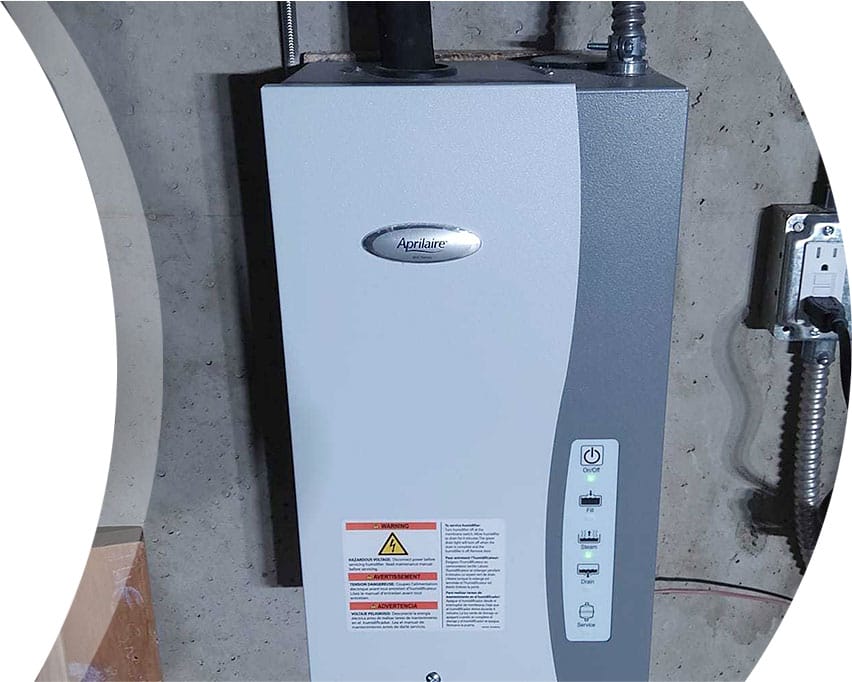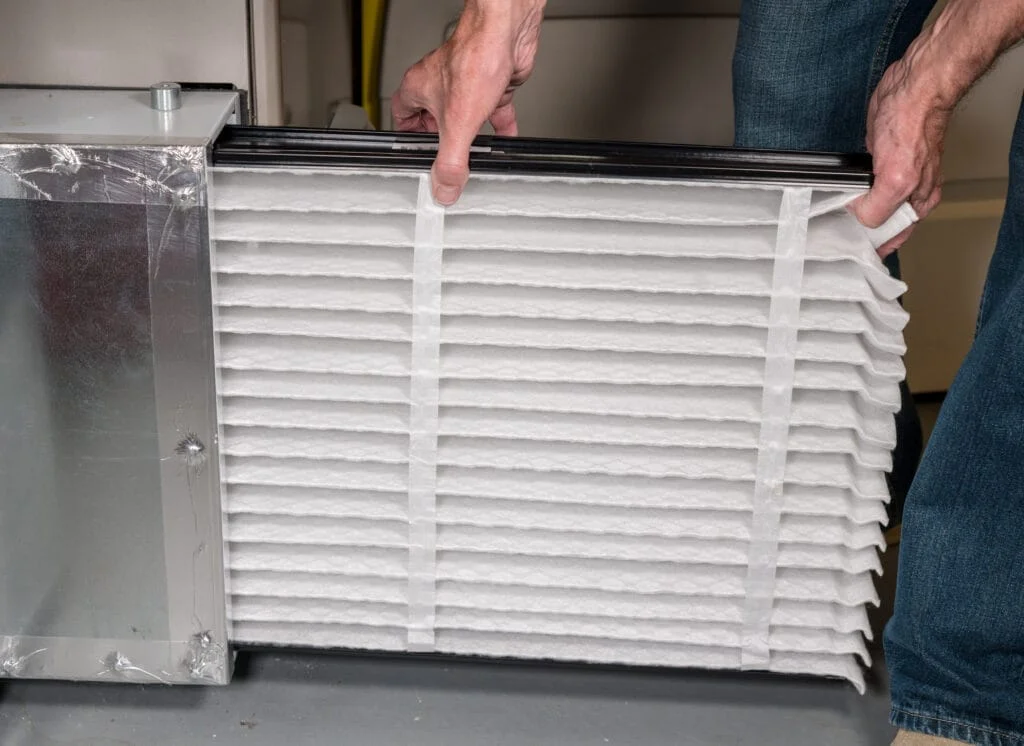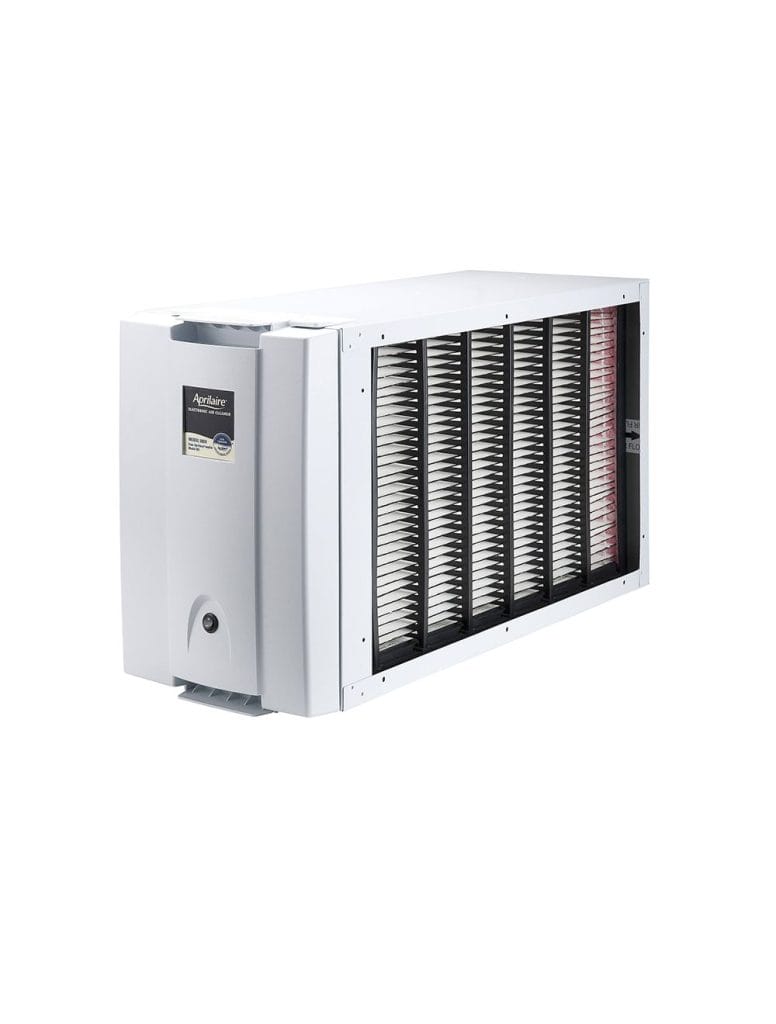How to improve your indoor air quality. When winter arrives in Englewood, many of us spend more time indoors with windows tightly shut to keep the cold out. While this keeps our homes warm, it can also lead to a buildup of indoor pollutants, allergens, and moisture, negatively impacting indoor air quality. Poor air quality can cause issues like allergies, respiratory discomfort, and general discomfort. Here are practical steps to improve indoor air quality in your Englewood home during the winter months.
1. Replace Your Furnace Filter Regularly
Your furnace filter plays a significant role in trapping dust, pet dander, and other particles circulating through your home. During the winter, when your heating system is in constant use, it’s essential to replace your filter every 1-3 months to ensure it’s effectively capturing pollutants. Using a high-efficiency particulate air (HEPA) filter can further improve air quality by capturing even smaller particles.
2. Invest in an Air Purifier
Air purifiers can make a noticeable difference in improving indoor air quality, especially during winter. HEPA air purifiers are effective at removing airborne allergens, dust, and other contaminants from the air. Place air purifiers in commonly used rooms, like bedrooms and living rooms, to reduce pollutants in the spaces where you spend the most time.
3. Use a Humidifier to Balance Indoor Humidity
Dry winter air can irritate your respiratory system, worsen allergies, and lead to dry skin. A humidifier can help add moisture back into the air, making your home more comfortable while reducing the effects of dry air on your health. Aim to maintain indoor humidity levels between 30-50% to keep your home’s air at an optimal comfort level without creating conditions for mold growth.
4. Ventilate Your Home Wisely
While opening windows for ventilation can be challenging in cold weather, there are still ways to allow fresh air into your home. Consider using an energy recovery ventilator (ERV) or heat recovery ventilator (HRV), which can bring fresh air into your home without losing much heat. These systems help replace stale indoor air with fresh outdoor air, improving air quality while maintaining warmth.
5. Keep Your Home Clean and Free of Dust
Regular cleaning is key to maintaining good indoor air quality. Dust, pet dander, and other particles can accumulate quickly, especially when windows are closed. Vacuum carpets, rugs, and upholstery weekly using a vacuum with a HEPA filter, and dust surfaces with a damp cloth to prevent allergens from becoming airborne. Wash bedding and curtains regularly, as they can trap dust and allergens.
6. Reduce Chemical Pollutants
Winter means spending more time indoors, which can lead to increased exposure to household chemicals from cleaning supplies, air fresheners, and other products. Opt for natural or fragrance-free cleaning products to reduce the number of volatile organic compounds (VOCs) in your home. Additionally, avoid smoking indoors, as tobacco smoke can release harmful chemicals and particles into the air, further degrading indoor air quality.
7. Use Kitchen and Bathroom Exhaust Fans
Using exhaust fans in kitchens and bathrooms helps remove moisture, odors, and airborne particles from cooking or bathing. Kitchen fans, in particular, can reduce indoor pollutants produced by cooking, such as smoke and grease particles. Be sure to use these fans when cooking or showering, and keep them running for a few minutes after you’re done to clear the air fully.
8. Schedule a Duct Cleaning
Over time, dust, pet hair, and allergens can accumulate in your home’s ductwork, circulating through your HVAC system and impacting air quality. Scheduling a professional duct cleaning can help remove built-up contaminants, ensuring that the air flowing through your home is as clean as possible. This can be especially beneficial if it’s been a few years since your ducts were last cleaned or if you notice dust buildup around vents.
9. Maintain Your HVAC System
Your heating system plays a crucial role in indoor air quality. Scheduling an annual HVAC maintenance service ensures that your system is running efficiently and free of issues that could impact air quality. A professional technician will check for any leaks, clean components, and make sure everything is working optimally. A well-maintained system not only improves air quality but also helps your heating system operate efficiently throughout winter.
Improve Your Winter Indoor Air Quality with Professional Help
Improving indoor air quality during Englewood’s winter months can make your home more comfortable and healthier. By following these steps, you can reduce allergens, pollutants, and dryness in your home, creating a more pleasant indoor environment.
At Top Shelf Electric, Heating, & Plumbing, we offer a range of services to help you maintain good indoor air quality, including HVAC maintenance, duct cleaning, and humidifier installations. Our experts can guide you on the best solutions for your home to keep your indoor air fresh and clean all winter long.
Contact us today to schedule a service or consultation and enjoy better air quality this winter.



